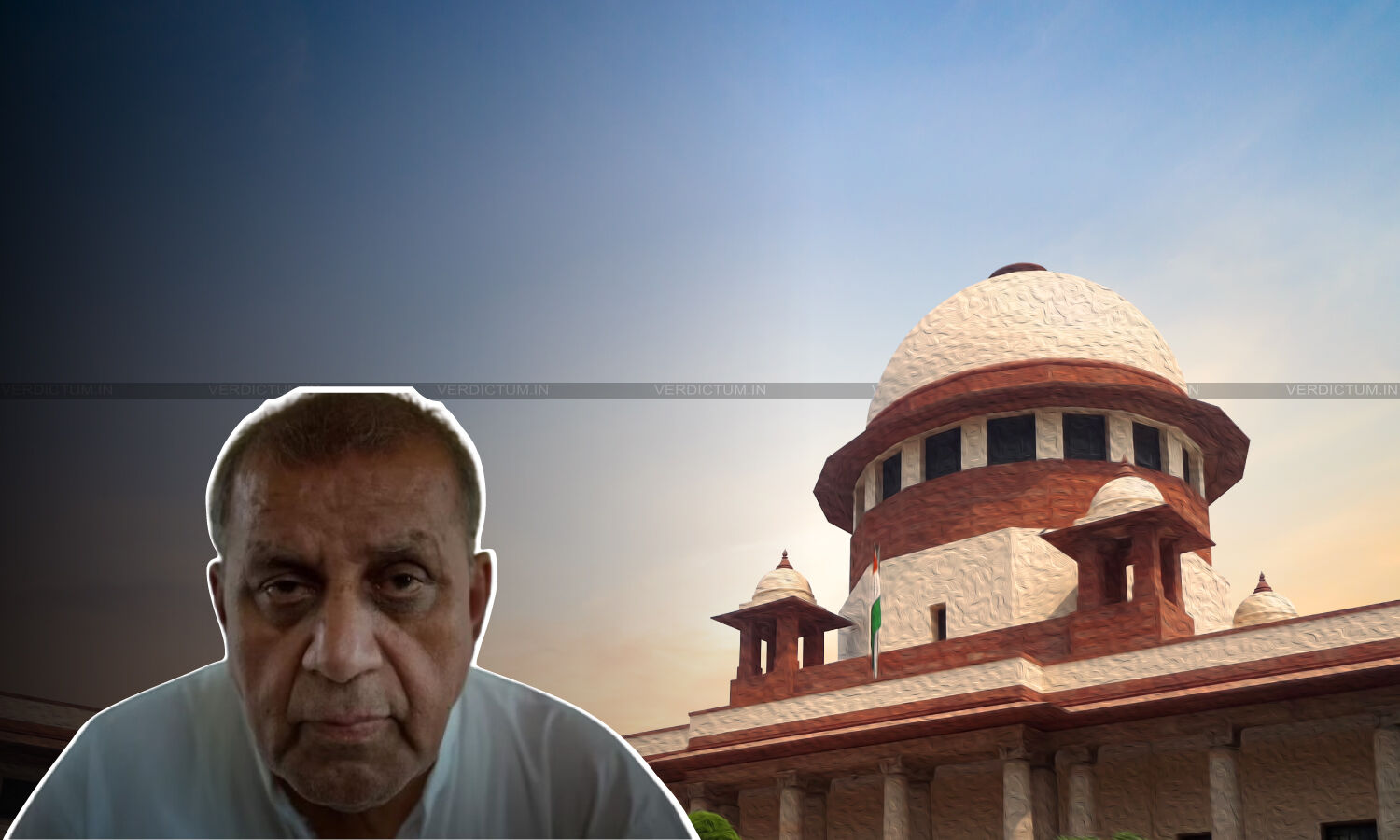Supreme Court On Mercy Plea Of Swamy Shraddananda

Today, the Supreme Court, while hearing the Writ Petition filed by Swamy Shraddananda, also known as Murali Manohar Mishra, seeking a direction to the President of India to consider his mercy petition, remarked, “What about the lady you mercilessly…buried in her own house?“
Shraddananda is serving life imprisonment till death for the 1991 murder of his wife, Shakereh. He had buried her alive.
The Bench of Chief Justice of India B.R Gavai and Justice K. Vinod Chandran listed the matter after eighteen weeks.
During the hearing today, Advocate Varun Thakurappearing for Shraddananda, submitted that Shraddananda has been suffering from multiple diseases, have been in jail for more than 31 years and never been released on parole, even for a single day.
Upon which, CJI Gavai said, “See the facts.”
Thakur further insisted and informed the Court that Shraddananda has been convicted only on the basis of judicial confession. “I am suffering serious disease…at least some facility, 85 years old…”, submitted Thakur.
CJI remarked, “What about the lady you mercilessly…buried in her own house?”
Accordingly, the matter will be listed after eighteen weeks.
Case Background
Earlier, the Supreme Court had asked the Central Government to file a reply to a Writ Petition filed by Swamy Shraddananda, also known as Murali Manohar Mishra, who has spent over 31 years in prison, seeking a direction to the President of India to consider his mercy petition.
Shakereh and Shraddananda were married in April 1986, but their union ended in tragedy when Shakereh disappeared in May 1991. After years of uncertainty, the case took a decisive turn in March 1994 when the Central Crime Branch, Bengaluru, began investigating the complaint of her disappearance. Under intense interrogation, Shraddananda confessed to killing his wife, leading to the exhumation of her body and his subsequent arrest.
A Trial Court convicted Shraddananda in 2005 and sentenced him to death for the brutal crime. The Karnataka High Court upheld the conviction and the death sentence later that year.
Later, the division-bench of the Apex Court also upheld his conviction but split on his sentence. While one judge ruled that Shraddananda deserved nothing less than capital punishment, the other recommended that he remain incarcerated for the rest of his life without parole.
To resolve the disagreement, the case was referred to a three-judge bench, which delivered its final verdict on July 22, 2008. The Bench had imposed a sentence of life imprisonment till the end of Shraddananda’s natural life, sparing him the death penalty but denying him any possibility of release.
Cause Title: Swamy Shraddananda@ Murali Manohar Mishra vs Uoi [W.P. (Crl.) No. 5/2025; Diary No. 5622 /2024]
